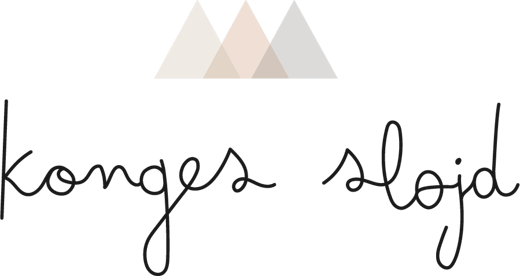Responsible Business Policy 2025

Dear Partner,
We are committed to running a responsible and sustainable business. Ensuring that our products are produced under responsible conditions stands at the core of this commitment, and in fulfilment of our ambition, we expect our partners – suppliers, subcontractors, agents, and other business partners – to operate responsibly and act with integrity, fairness and responsibility in all aspects of their business. This policy is focused on our supply chain, however the due diligence process is also implemented and carried out at our Headquarter.
Our Due Diligence process is embedded in our ESG Strategy and seeks to uphold the principles of good governance and social and environmental sustainability and convey such corporate ethical culture to all our stakeholders, promoting respect for fundamental Human and Labour Rights across our supply chain partners.
Implementation of due diligence processes is the focal point of our work, and that means in practice that we will:
1. Identify areas where there is a risk that the business conduct may have negative impact on e.g. human rights, environment and climate conditions.
2. Prevent and/or remedy that the negative impact takes place.
3. Follow up on the measures that have been taken, are complied with, and have the desired effect.
4. Account for the effort to handle the negative impact.
The standards of the Policy are based on internationally agreed conventions, including but not limited to: the International Bill of Human Rights, the International Labour Organisation’s (ILO) Declaration of the Fundamental Principles and Rights at Work, the UN Guiding Principles on Business and Human Rights, the OECD Guidelines for Multinational Enterprises, the OECD Due Diligence Guidance for Responsible Business Conduct, the UN Convention Against Corruption, the Rio Declaration on Environment and Development; and the UN Global Compact’s 10 Principles.
All suppliers are expected to comply with national legislation, regulations, and applicable practices and industry standards as relevant to their business.
Please refer to the enclosed Policy for more information about the specific requirements. If you have any questions regarding this policy, our Code of Conduct, or our supply chain manual in general, please do not hesitate to contact our offices.
With kind regards,
Konges Sløjd A/S
Due diligence requirements
International guidelines call on businesses to exercise due diligence to detect, prevent, and mitigate any adverse impacts related to human and labour rights, the environment, including climate, and anti-corruption.
When a supplier is onboarded to our supply chain they go through a risk assessment in our IT system Qarma and must sign a supplier agreement, where they commit to upholding all KS policies. All policies, including the Code of Conduct, have been designed to incorporate best practices outlined by the UN Guiding Principles (UNGP) on Business and Human Rights, the International Labour Organization, (ILO) and the The Organisation for Economic Co operation and Development (OECD). The policies address specific human rights risks inherent in KSs supply chain.
We conduct annual risk assessments of our human rights risks and use those assessments to inform and update our policies, factory assessment criteria and methodology, and to inform decisions about where to invest resources in risk mitigation. This risk assessment is primarily concerned with the risk of adverse impacts on people that KS can cause, contribute to, or to which we are linked by our Tier 0 and Tier 1 business partners.
• Tier 0 are our traders or agents
• Tier 1 are the companies we do business with directly and work with product manufacture or processing
The scope of this assessment covers all sites where KS production takes place that is assessed and verified by KS. This includes cut, stitch, weave/link/knit, iron, pack embroidery, laundry, printing, dying, tannery, assembly, electroplating, casting, upper manufacturers, sample room, warehousing, and homeworker facilities. We consider the severity and likelihood of these issues and our leverage. We also draw on a range of sources such as data from our IT Qarma system, stakeholder and local NGOs and trade unions views, as well as desktop research such as analysis of external datasets like human rights indices.
Under the scope of this human rights risk and salient issues assessment, we have identified numerous issues.
The human rights we face are:
ACTIONS WE TAKE:
With each of these risks, we review our policies, assessment methodology, remediation and mitigation efforts, to ensure they meet guidance on best practice, and dedicate resources. We recognise there is more to do to better understand human rights risk and measure impact to ensure our due diligence and action is really addressing these salient issues adequately.
Risks to human and labour rights are not static, and advice on how to address them is continually evolving, so we will regularly review our human rights risk, our accompanying policies, and assessment methodology, as well as the impact of our mitigation efforts.

Environmental risks
Our supply chain is also where we have the
biggest environmental impact, therefore, strong cooperation and dialogue with our suppliers on how to reduce the consumption of water, chemicals, energy and the production of waste, is vital to our success.
Through our ESG strategy, we identify key environmental risks—such as high water and energy use, chemical consumption, and waste generation—and translate these into concrete focus projects aimed at reducing our overall risk level.
To support this, we work with trusted certification schemes such as GOTS, GRS, and OCS, which help us verify environmental and social performance across our supply chain. These tools form part of our broader due diligence approach and guide how we set requirements for suppliers.
We also use product-specific risk assessments during the onboarding process to ensure that each product category addresses the most relevant environmental concerns—whether that be chemical use, water intensity, or waste handling—right
from the start.
Together, these efforts support our ambition to meet the EU Green Deal targets by 2030 and ensure that our supplier partnerships are built on shared responsibility and measurable impact. Under the scope of this environmental risk and salient issues assessment, we have identified numerous issues.
The environmental risks we face are:
Signature
By, name, function:
Thomas Ernfeldt, COO
 connexion
connexion











